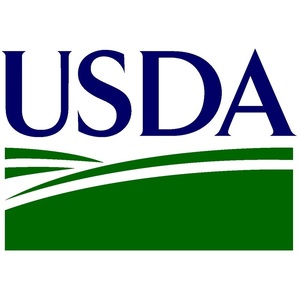USDA assists farmers impacted by China's retaliatory tariffs

July 24, 2018
BY USDA
U.S. Secretary of Agriculture Sonny Perdue announced July 24 that the USDA will take several actions to assist farmers in response to trade damage from unjustified retaliation. President Trump directed Secretary Perdue to craft a short-term relief strategy to protect agricultural producers while the administration works on free, fair and reciprocal trade deals to open more markets in the long run to help American farmers compete globally. Specifically, USDA will authorize up to $12 billion in programs, which is in line with the estimated $11 billion impact of the unjustified retaliatory tariffs on U.S. agricultural goods. These programs will assist agricultural producers to meet the costs of disrupted markets.
“This is a short-term solution to allow President Trump time to work on long-term trade deals to benefit agriculture and the entire U.S. economy,” Perdue said. “The president promised to have the back of every American farmer and rancher, and he knows the importance of keeping our rural economy strong. Unfortunately, America’s hard-working agricultural producers have been treated unfairly by China’s illegal trading practices and have taken a disproportionate hit when it comes illegal retaliatory tariffs. USDA will not stand by while our hard-working agricultural producers bear the brunt of unfriendly tariffs enacted by foreign nations. The programs we are announcing today help ensure our nation’s agriculture continues to feed the world and innovate to meet the demand.”
Advertisement
Advertisement
Of the total unjustified retaliatory tariffs imposed on the U.S., a disproportionate amount was targeted directly at American farmers. Trade damage from such retaliation has impacted a host of U.S. commodities, including field crops like soybeans and sorghum, livestock products like milk and pork, and many fruits, nuts and other specialty crops. High tariffs disrupt normal marketing patterns, affecting prices and raising costs by forcing commodities to find new markets. Additionally, there is evidence that American goods shipped overseas are being slowed from reaching market by unusually strict or cumbersome entry procedures, which can affect the quality and marketability of perishable crops. This can boost marketing costs and discount our prices, and adversely affect our producers. USDA will use the following programs to assist farmers:
-The Market Facilitation Program, authorized under The Commodity Credit Corporation Charter Act and administered by Farm Service Agency, will provide payments incrementally to producers of soybeans, sorghum, corn, wheat, cotton, dairy and hogs. This support will help farmers manage disrupted markets, deal with surplus commodities, and expand and develop new markets at home and abroad.
Advertisement
Advertisement
-Additionally, USDA will use CCC Charter Act and other authorities to implement a Food Purchase and Distribution Program through the Agricultural Marketing Service to purchase unexpected surplus of affected commodities such as fruits, nuts, rice, legumes, beef, pork and milk for distribution to food banks and other nutrition programs.
-Finally, the CCC will use its Charter Act authority for a Trade Promotion Program administered by the Foreign Agriculture Service in conjunction with the private sector to assist in developing new export markets for our farm products.
Related Stories
U.S. fuel ethanol capacity fell slightly in April, while biodiesel and renewable diesel capacity held steady, according to data released by the U.S. EIA on June 30. Feedstock consumption was down when compared to the previous month.
The U.S. EPA on July 8 hosted virtual public hearing to gather input on the agency’s recently released proposed rule to set 2026 and 2027 RFS RVOs. Members of the biofuel industry were among those to offer testimony during the event.
The USDA’s Risk Management Agency is implementing multiple changes to the Camelina pilot insurance program for the 2026 and succeeding crop years. The changes will expand coverage options and provide greater flexibility for producers.
President Trump on July 4 signed the “One Big Beautiful Bill Act.” The legislation extends and updates the 45Z credit and revives a tax credit benefiting small biodiesel producers but repeals several other bioenergy-related tax incentives.
CARB on June 27 announced amendments to the state’s LCFS regulations will take effect beginning on July 1. The amended regulations were approved by the agency in November 2024, but implementation was delayed due to regulatory clarity issues.
Upcoming Events










